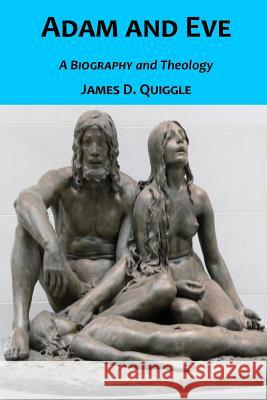Adam and Eve, A Biography and Theology » książka
Adam and Eve, A Biography and Theology
ISBN-13: 9781463676377 / Angielski / Miękka / 2011 / 390 str.
The best way to describe Adam and Eve, A Biography and Theology, is to give a very brief synopsis of each chapter. One: the authenticity and historicity of the biblical account; the method of interpretation. Two: nature and attributes of Adam and Eve's parent, God; salvific necessity of a common human nature derived from Adam. Three: characteristics of the created human nature; image and likeness of God; reasons God had for creating mankind. Four: the four responsibilities God gave Adam to guide mankind's interaction with his Creator, the earth, and its creatures. Five: life in the garden pre-sin; location of Eden; exercise of Adam's responsibilities; formation of the Woman; why God tested Adam's faith; consequences of Adam's choice. Six: their crime, Genesis 3:1-8; actions and motives of each participant; immediate and long-term consequences. Seven: their confrontation with God, Genesis 3:9-24; their responses; an assessment of the hope innate to God's chastisement. Eight: how mankind will live in a world changed by sin, as seen through Cain and Abel; the legacy left to Woman's seed and the serpent's seed. Nine: the spiritual problems faced by their descendants. The biography proper concludes with this chapter. Ten: their contribution to theology; topics include the doctrines of God, man, sin, and salvation. Six appendices discuss certain issues in more detail. A glossary provides definitions of certain terms. Bibliography and Sources section indicates materials used by the author in preparing this book. A biography of Adam and Eve is important for four reasons. One, much of modern Christianity denies their historicity, a view that impugns the intelligence, integrity, and faith of Jesus and the apostles. Second, modern Christianity views Adam and Eve as fictional characters, so there is a need for a rational view of Adam and Eve as historical persons. Third, their creation and their sin are the bases for the biblical view of man, sin, and salvation. If Adam was evolved, not created, then man is not the noble-but-fallen creature the Bible portrays him to be, there is no sin from which mankind must be rescued, Jesus died in vain, and evangelism, repentance, and saving faith are useless and hopeless. Fourth, to answer difficult questions. Are there two creation accounts, as critics suggest? Was there some defect in Adam and Eve's creation that required them to sin? How did their sin affect the human nature of their posterity? Why did God join humanity to his deity (the incarnation) to effect man's redemption from the consequences of Adam's sin? These and many more questions are answered in this book.
Zawartość książki może nie spełniać oczekiwań – reklamacje nie obejmują treści, która mogła nie być redakcyjnie ani merytorycznie opracowana.











